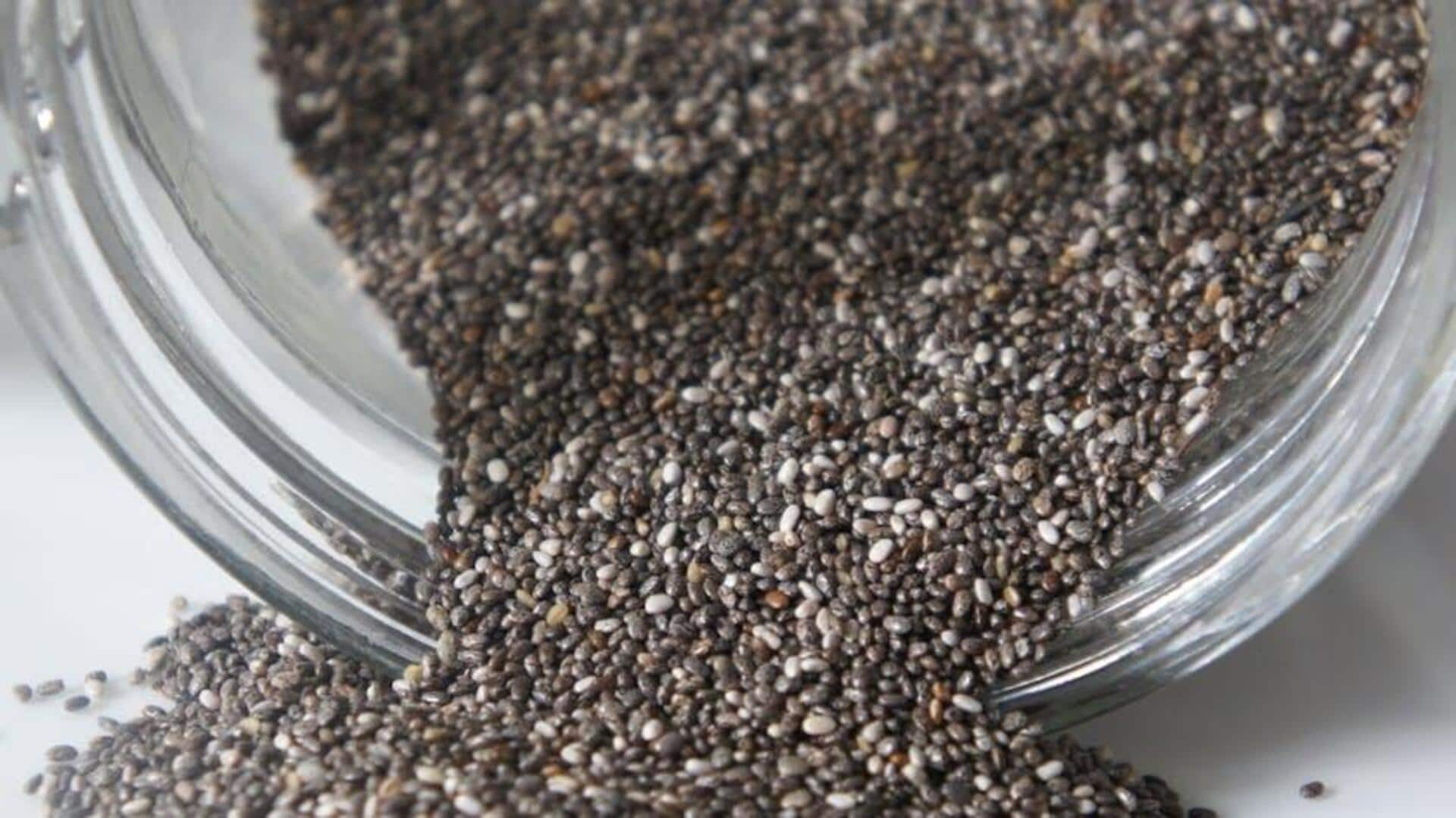
Chia seeds v/s flax seeds: Comparing their nutritional value
What's the story
Chia seeds and flax seeds are among the most popular options for those looking to improve their nutritional intake. Both are packed with essential nutrients, making them excellent additions to a healthy diet. While chia seeds are famous for their high fiber content, flax seeds are a great source of omega-3 fatty acids. Here's how the two differ nutritionally.
Fiber comparison
Fiber content in chia and flax seeds
Chia seeds are famous for being high in fiber, as 34% of their weight consists of fiber. This makes them a great option for keeping your digestive health in check and ensuring regular bowel movements. Meanwhile, flax seeds have around 27% fiber by weight, which is still quite high but slightly lesser than chia seeds. Both seeds significantly contribute to daily fiber consumption when added to meals/snacks.
Omega-3 levels
Omega-3 fatty acids presence
Flax seeds emerge as a better source of omega-3 fatty acids than chia seeds. They are rich in alpha-linolenic acid (ALA), an essential fatty acid that promotes heart health and curbs inflammation. One tablespoon of ground flaxseed delivers about 1.6 grams of ALA, while chia seeds deliver around 0.5 grams per tablespoon. Incorporating either of the seeds into your diet can fulfill daily omega-3 needs.
Protein insights
Protein content analysis
Both chia and flax seeds offer a decent amount of protein, which is good for muscle repair and growth. Chia seeds have about four grams of protein in an ounce, while flaxseeds provide about five grams per ounce. Though the difference is small, it can sway your decision based on your protein requirements or dietary preferences.
Antioxidant benefits
Antioxidant properties examination
Flaxseeds also have lignans—antioxidant compounds—that could reduce cancer risk and improve health by fighting oxidative stress in the body. Chia also has antioxidants, but not lignans. However, its antioxidants still work positively towards reducing inflammation within cells over time when consumed regularly as part of balanced meals or snacks throughout one's day-to-day routine without any adverse effects noted thus far from scientific studies conducted worldwide today!